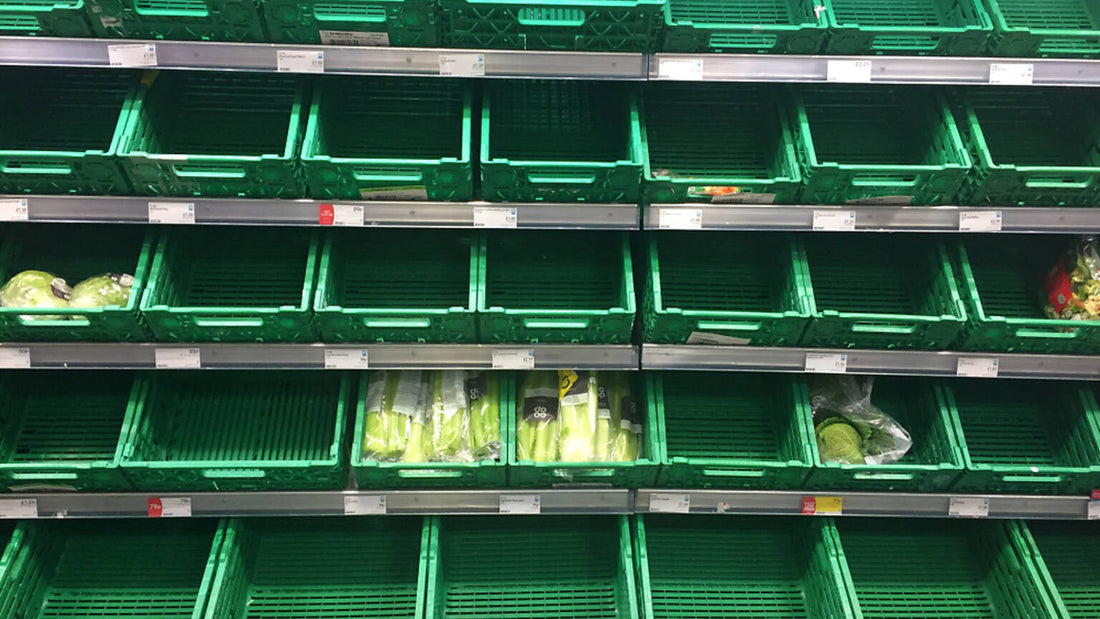In recent times, the sight of empty supermarket shelves has become a familiar one, as supply chain disruptions and panic buying have left many stores struggling to keep their shelves stocked. While these disruptions have highlighted the fragility of our global supply chains, they have also brought to light the importance of supporting local businesses and farmers.
When supply chains are disrupted, local businesses and farmers can often provide a valuable alternative source of food and other essentials. By supporting local businesses and farmers, we can help to reduce our reliance on global supply chains and build more resilient and sustainable communities.
Here are some ways that you can support local businesses and farmers:
- Shop at Farmers' Markets
Farmers' markets are a great way to support local farmers and businesses. By shopping at farmers' markets, you can buy fresh, locally grown produce and support small businesses in your community. You can also talk to the farmers and learn more about how your food is produced.
- Join a Community Supported Agriculture (CSA) Program
CSA programs allow you to buy a share in a local farm and receive a weekly or bi-weekly box of fresh produce. By participating in a CSA program, you can support local farmers and get fresh, seasonal produce directly from the source.
- Buy Directly from Local Producers
Many local producers sell their products directly to consumers. This can include anything from fresh produce to meat, dairy products, and baked goods. By buying directly from local producers, you can support small businesses and get high-quality, locally sourced products.
- Choose Local Products at the Supermarket
Many supermarkets now carry local products, including fresh produce, meat, and dairy products. By choosing local products, you can support local businesses and reduce your carbon footprint by buying products that have not been transported long distances.
- Eat Seasonally
Eating seasonally can help to support local farmers and reduce our reliance on global supply chains. By eating foods that are in season, you can support local farmers and get the freshest, most nutritious produce available.
Now, the argument that local products are more expensive than buying from supermarkets is a completely valid one, and a problem that we are intimately familiar with. The good news is that in the long term, this is a solvable problem as well. When we choose to support local businesses and producers, we can create a more competitive and diverse marketplace. This can help to reduce the prices of local products in several ways:
- Reduced Transportation Costs
When we buy locally produced goods, we reduce the distance that products need to travel to reach our homes. This can help to reduce transportation costs, which can make the products more affordable. Products that need to be shipped long distances often require expensive transportation, which can increase their prices.
- Reduced Marketing and Packaging Costs
Local producers often rely on word-of-mouth advertising and simple packaging to sell their products. This can help to reduce the marketing and packaging costs that are typically associated with mass-produced goods. By reducing these costs, local producers can offer their products at a lower price point.
- Reduced Overhead Costs
Large corporations often have high overhead costs, including rent, salaries, and utilities. Local businesses, on the other hand, often have lower overhead costs, as they may not need to maintain large storefronts or employ large staffs. This can help to reduce the prices of locally produced goods, as local businesses may be able to pass these savings on to consumers.
- Greater Price Transparency
When we buy from local producers, we often have a greater understanding of the production costs associated with the products we are purchasing. This can create greater price transparency, which can help to reduce the prices of local products. When consumers have a better understanding of how much it costs to produce a product, they may be more willing to pay a fair price for it.
- Encouraging Competition
Supporting local businesses and producers can create a more competitive marketplace, which can help to drive down prices. When local businesses and producers compete for customers, they may need to offer lower prices or better value to attract and retain customers.
Conclusion
Empty supermarket shelves have highlighted the importance of supporting local businesses and farmers. By supporting local producers, we can help to build more resilient and sustainable communities and reduce our reliance on global supply chains. We can also help reduce the costs of local products by creating a more competitive and resilient local market place.

